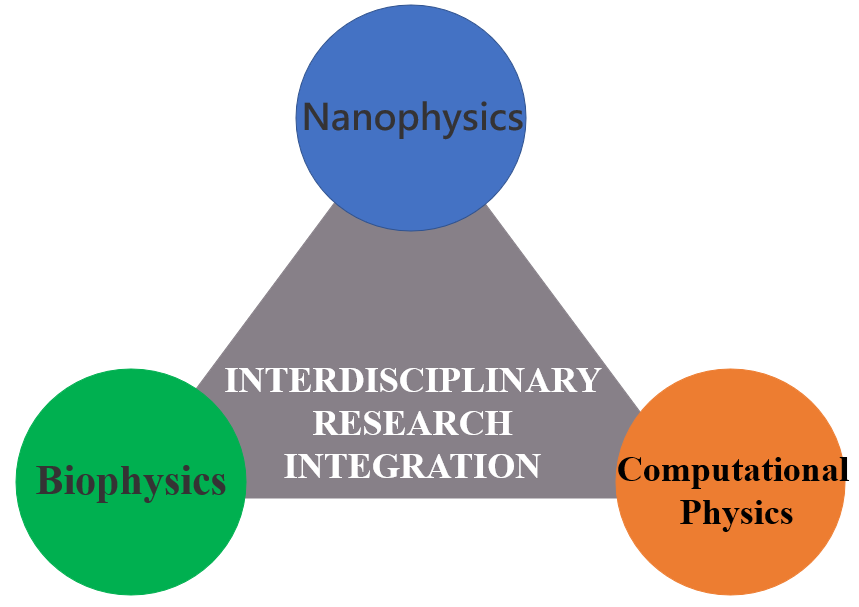Interdisciplinary research group
Interdisciplinary Research Groups
In addition to individual faculty research, our department emphasizes collaboration and integration across theoretical and experimental studies. We have organized our faculty's expertise into three interdisciplinary research groups. These areas not only cover fundamental research in traditional physics but also closely connect with 21st-century emerging technologies such as life sciences, environmental science, and marine technology. This integration not only advances scientific research in Taiwan but also aligns with the university's pragmatic approach to technological development. Moreover, these fields are closely related to and integrated with other departments such as Applied Mathematics, Chemistry, Life Sciences, Materials Science, Computer Science, and Electrical Engineering.
Nanophysics Research Group
This group explores fundamental issues in nanotechnology. As material systems become smaller, the proportion of surface atoms increases, making surface properties more critical. Surface defects significantly impact the physical and chemical properties of nanoparticles. The group also investigates magnetic and optical properties at the nanoscale and their forward-looking optical applications.
Faculty expertise includes: Nanobiotechnology, thermoelectric properties of intermetallic and semiconductor materials, nanotechnology, surface physics, semiconductor physics, condensed matter physics, and more.
Theoretical and Computational Physics Research Group
Research in theoretical physics uses mathematics and logic to explore fundamental physical laws in nature through the construction of theories and models. Computational physics focuses on building large-scale models and simulations, using available resources and leveraging parallel and distributed algorithms to tackle large-scale scientific computing problems. This group studies material properties and diverse applications through computational methods, and investigates atomic and subatomic properties and many-body phenomena.
Faculty expertise includes: Cosmology, statistical field theory, theoretical nuclear physics, computational physics, computational materials science, and more.
Biophysics Research Group
Physics offers tools for both extremely microscopic and macroscopic detection, supported by strong theoretical foundations and models. These strengths enable in-depth exploration of biological molecular systems and organisms, leading to breakthroughs in both academic research and the development of new biotechnologies. This group focuses on nanoscale biological systems, catalytic reaction mechanisms, and biological mass spectrometry analysis.
Faculty expertise includes: Spectroscopy in biomedical applications, biophysics, biological mass spectrometry, and more.

